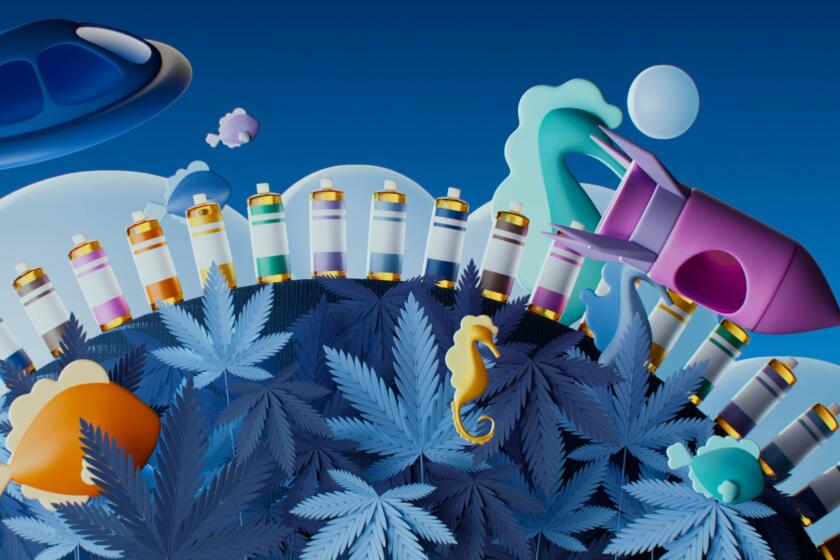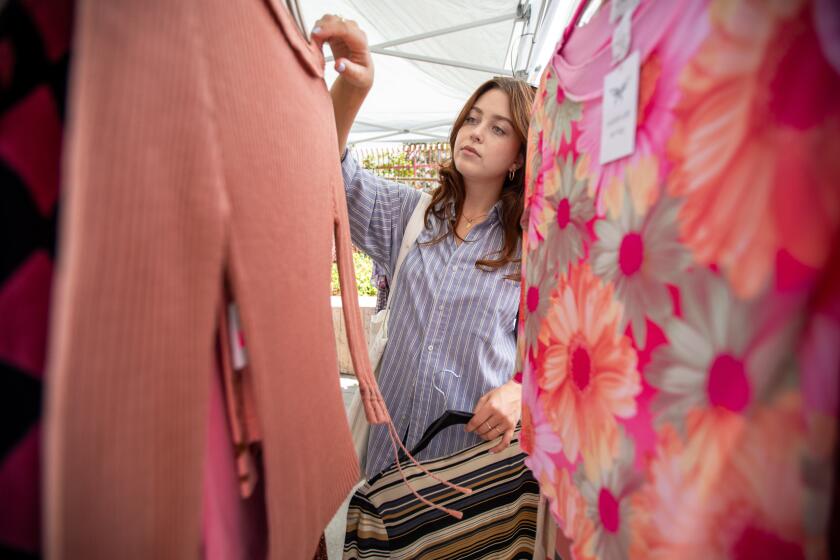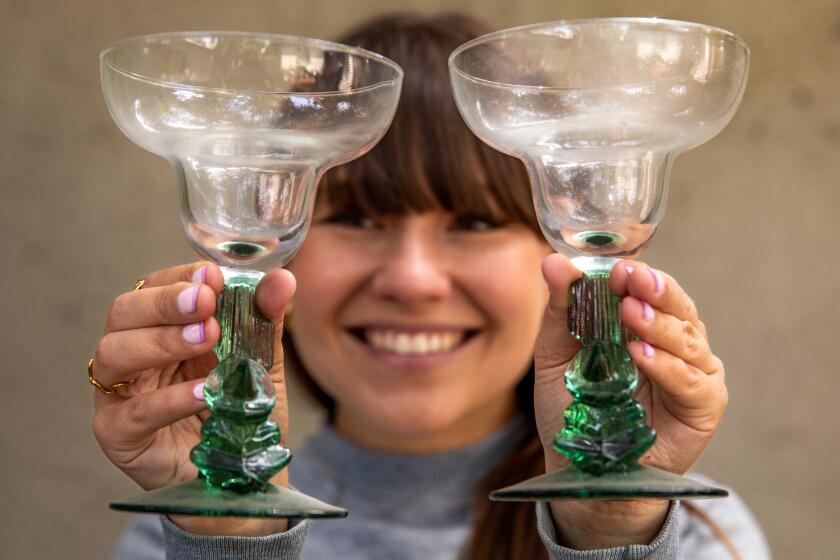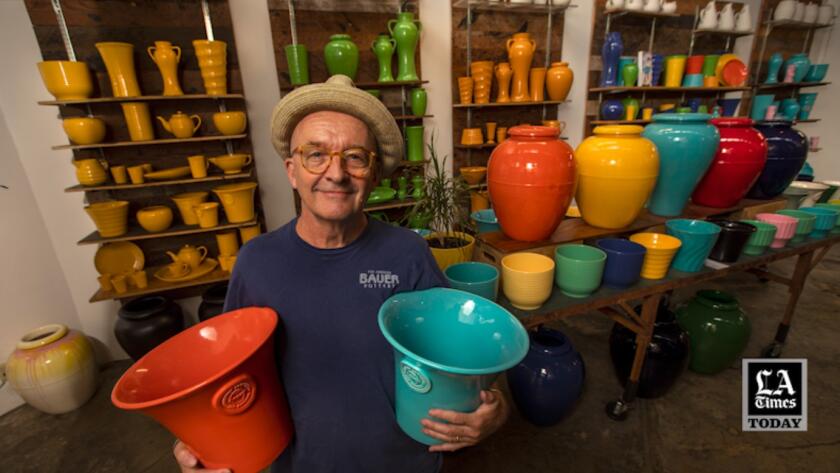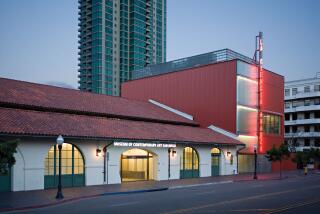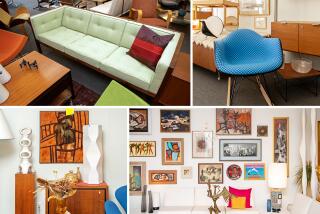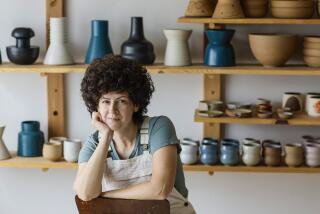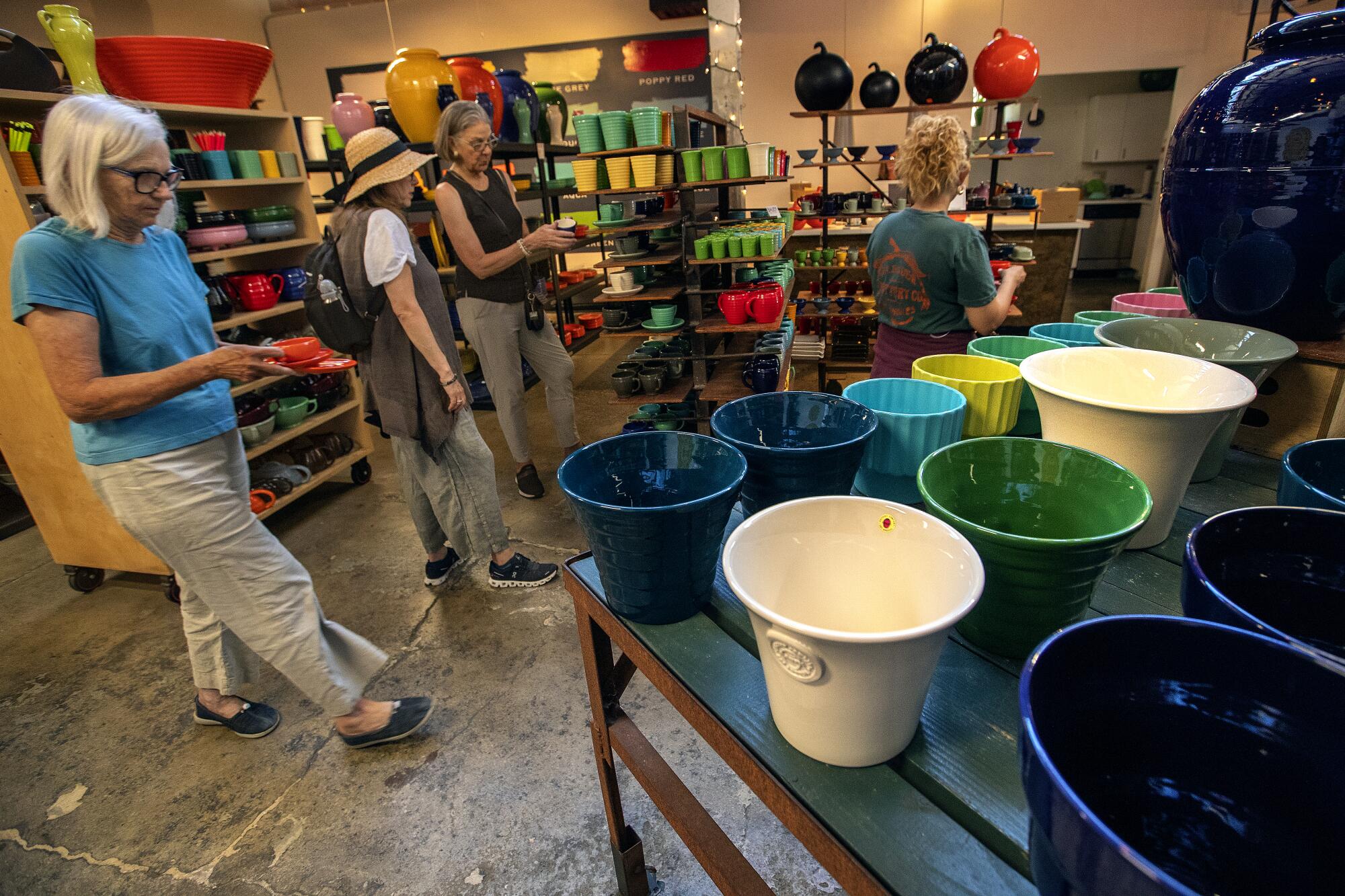
Brier Kittlitz wandered the aisles of Bauer Pottery in awe. Countless ceramic treasures filled the shelves. Some pieces so small they hold a single egg. Some, like the 24-inch oil jars, so large they stand out even among the vibrant shades of blue, green, yellow and red that fill the showroom.
This was no idle Friday afternoon visit to the northeast Los Angeles store.
Kittlitz, 18, and her father, Steve, were on an urgent 2,172-mile round-trip errand from DuPont, Wash., for her mother, a longtime Bauer collector. Word was out that Bauer Pottery had lost its lease and in September would close its only U.S. showroom, where shoppers could pick up discounted pieces of the vintage revival pottery that weren’t quite up to retail quality.
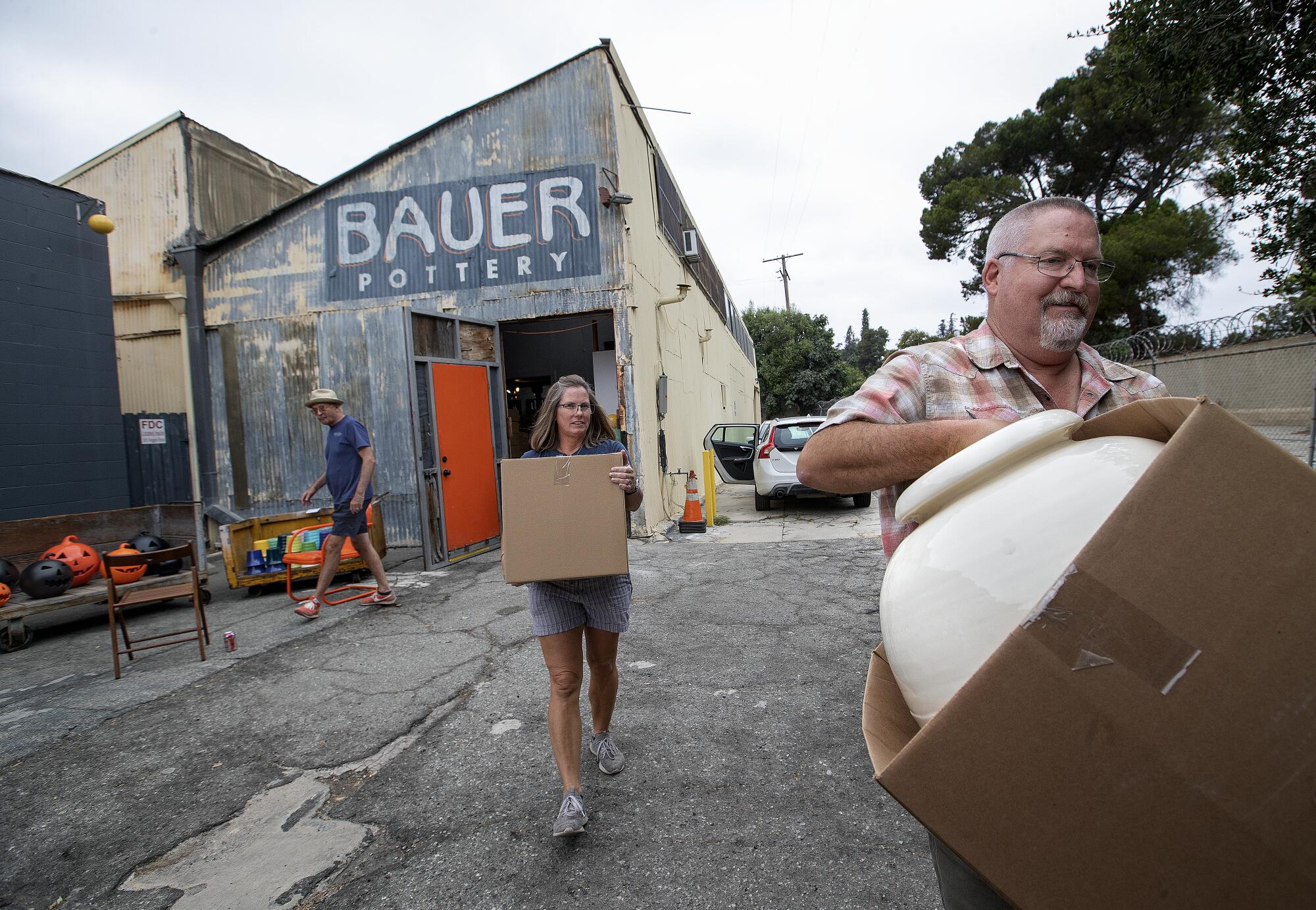
“When she found out the showroom was closing, and she couldn’t go because of work, she sent me and my dad down,” Kittlitz said. “We got a list from her, my aunt, my sister and her friends and are collecting all of the pottery for them.”
This was Kittlitz’s second visit to the showroom, and she was sad to see it close.
“I think it’s really disappointing because there’s something special about walking in and seeing all the beautiful colors,” Kittlitz said. “It’s such a fun little world.”
He started making peppermint castile soap in his Pershing Square tenement in 1948. Here’s the very California story of the man, the cultish product and the progressive company.
Bauer owner Janek Boniecki said there’s been an outpouring of support from customers after the announcement that the showroom had lost its lease and he needed to clear out the inventory.
“We have people who kind of get addicted to it. They come and get a pink plate and the blue one and the yellow one, and then they want something else,” Boniecki said. “We cater to that.”
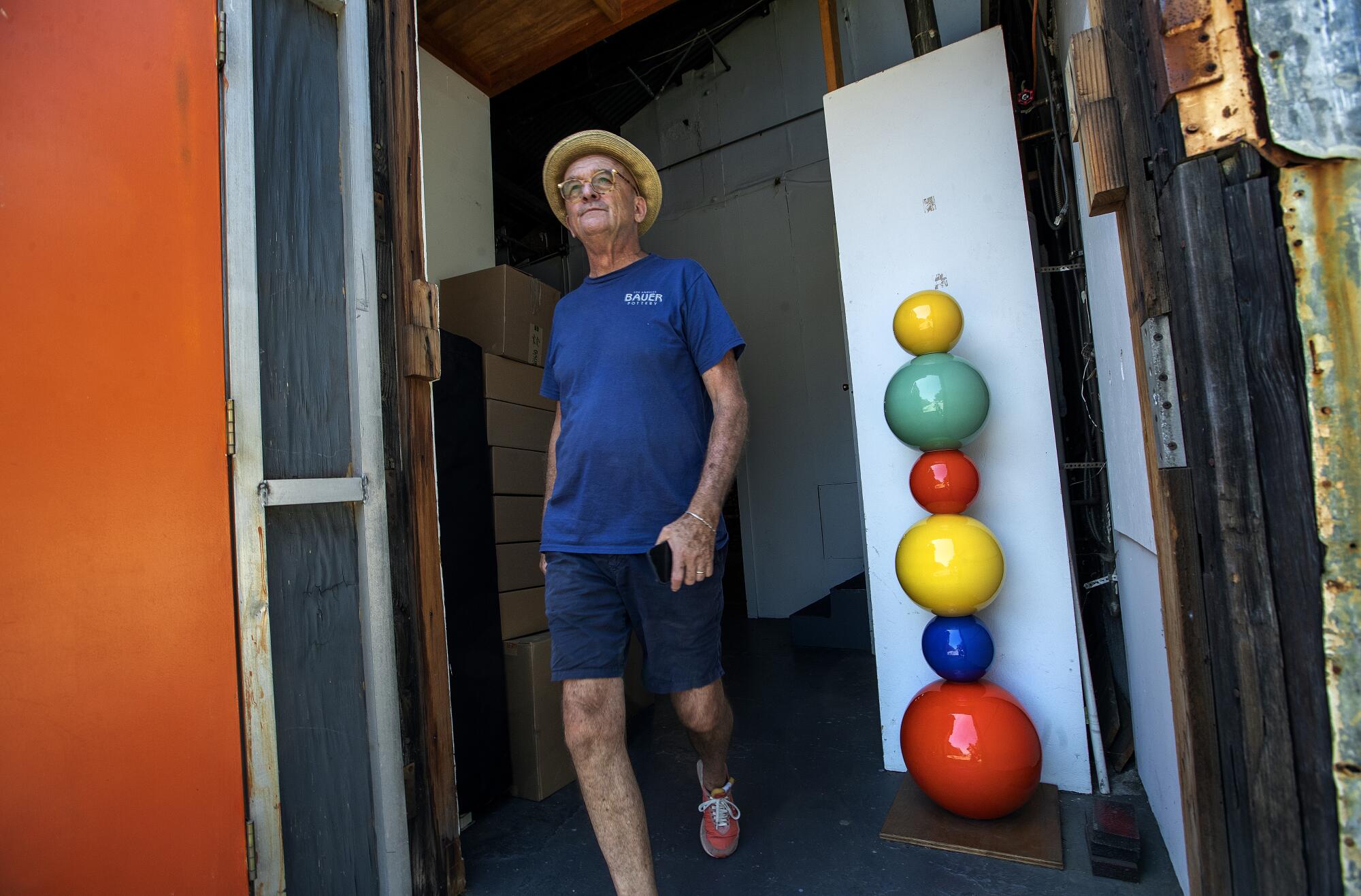
To clear out the nearly 20,000 pieces of pottery in the showroom’s warehouse, the Bauer showroom is open on Fridays and for weekend sales — the next is Aug. 26-27.
Boniecki, 69, never planned on being a pottery guy until one fateful flea market day when he stumbled upon a bright yellow dinner plate by J.A. Bauer Pottery Co. of Los Angeles. Bauer is one of several early 20th century dishware lines, such as Fiesta and Franciscan, that are beloved by collectors who are willing to pay steep prices.
Boniecki bought the rights to Bauer in 1998 and found a receptive audience in people who love vintage pottery but are afraid to use it because many of the old brands put lead in the glaze.
Reviving the classic pottery line led to some interesting hiccups. Some collectors dismissed it as a knock-off trying to pass itself off as old because the new products were so faithful to vintage Bauer that they were hard to distinguish from the originals.
“I found one of my customers that was buying from me had a series of antique shops and various malls throughout L.A. He was turning around and selling it as original Bauer,” said Boniecki, who began marking pieces as Bauer 2000 to avoid confusion. ‘I’m not out there trying to pretend it’s vintage.”
Any stigma of buying fashion secondhand is gone. Shoppers are running mini resale businesses as the investment value of certain luxury brands has soared.
Over the years, Boniecki added other lines that tapped into different collector veins, including midcentury Russel Wright, colorful pieces based on the work of 1960s artist Corita Kent and an oddball collection of tiki items.
In 2007, Bauer Pottery purchased a 35,000-square-foot orange-packing house turned ceramics factory in the San Bernardino County town of Highland, where the pieces are still hand-made by a crew of 25.
The pottery made there can be bought online and at shops nationwide (if you’re lucky enough to stumble across it). But the well-versed knew about the 3051 Rosslyn St. showroom, hidden off a dead-end street across from a cemetery, open Fridays and periodic weekends.
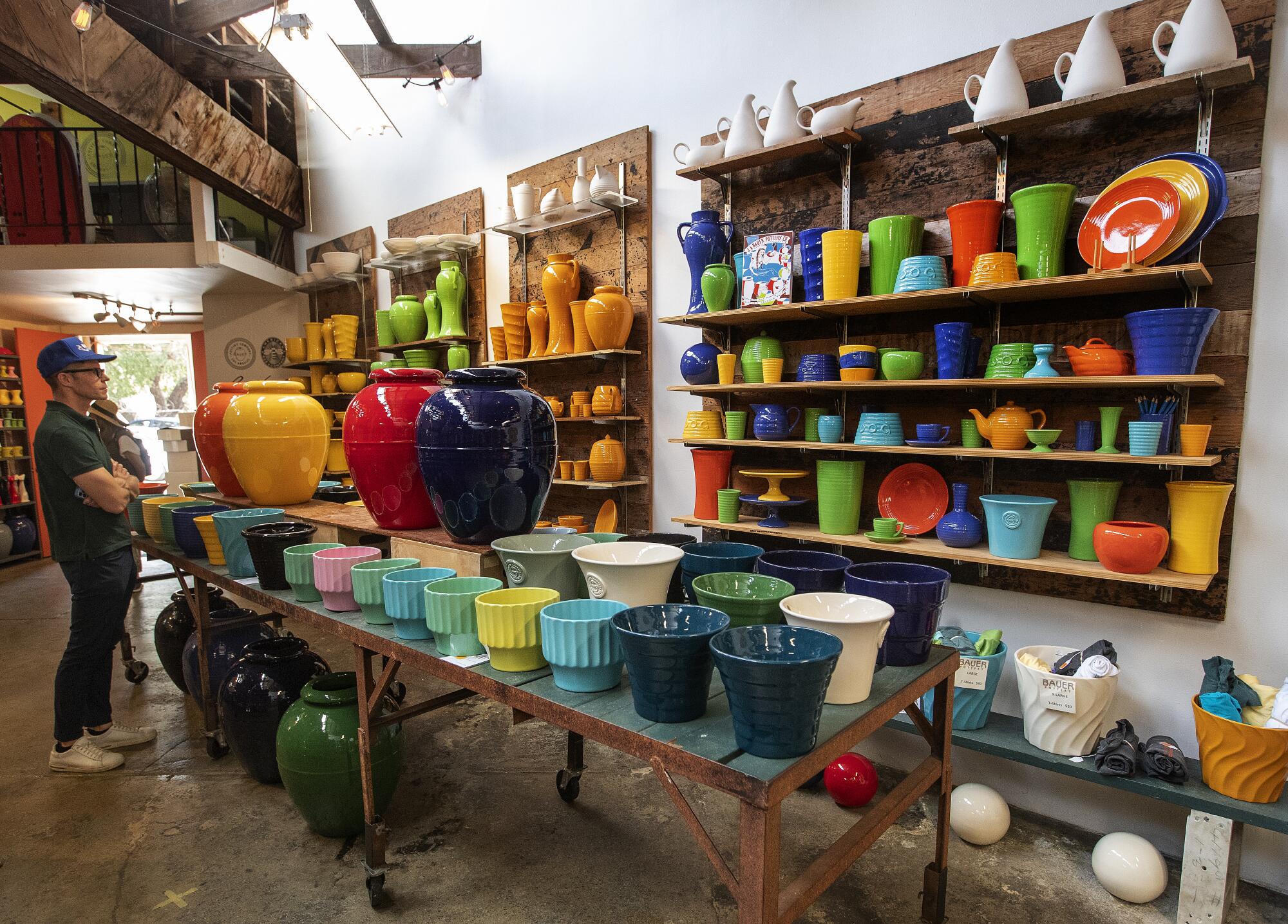
Its oddball industrial location and quirky sales — during the “dog days of summer” event, customers who brought their pooch received a free Bauer dog bowl — give a treasure-hunt feel to the warehouse-like showroom, where shoppers browse through tables and shelves laden with “seconds,” pottery with minute and nearly unnoticeable flaws at 30% off regular retail prices.
“It’s a blemish, it’s a flaw. It’s a pinhole, it’s a glazed skip, it may be something that’s not completely round,” Boniecki said. There’s also an online seconds sale twice a year for people who can’t make it to the showroom, Boniecki said, and “we’re not sending out broken pieces, we just select the best we can ship.”
But shopping in person is a crucial part of the Bauer experience.
From shopping etiquette to avoiding lengthy lines, here’s everything you need to know about the intriguing world of L.A. estate sales.
“When you step inside the showroom, it’s like stepping into a rainbow. Because there’s so much color, there’s so much joy and some great pottery,” Boniecki said.
Boniecki said he wanted to make the location as fun as the pottery housed within it.
The facade’s well-worn metal sheeting needed special attention, so a large Bauer sign was painted directly on it, and light strings formed triangles on the side. The door was painted the signature Bauer orange with the street number, 3051, perfect for a social media photo op after a day browsing the shelves.
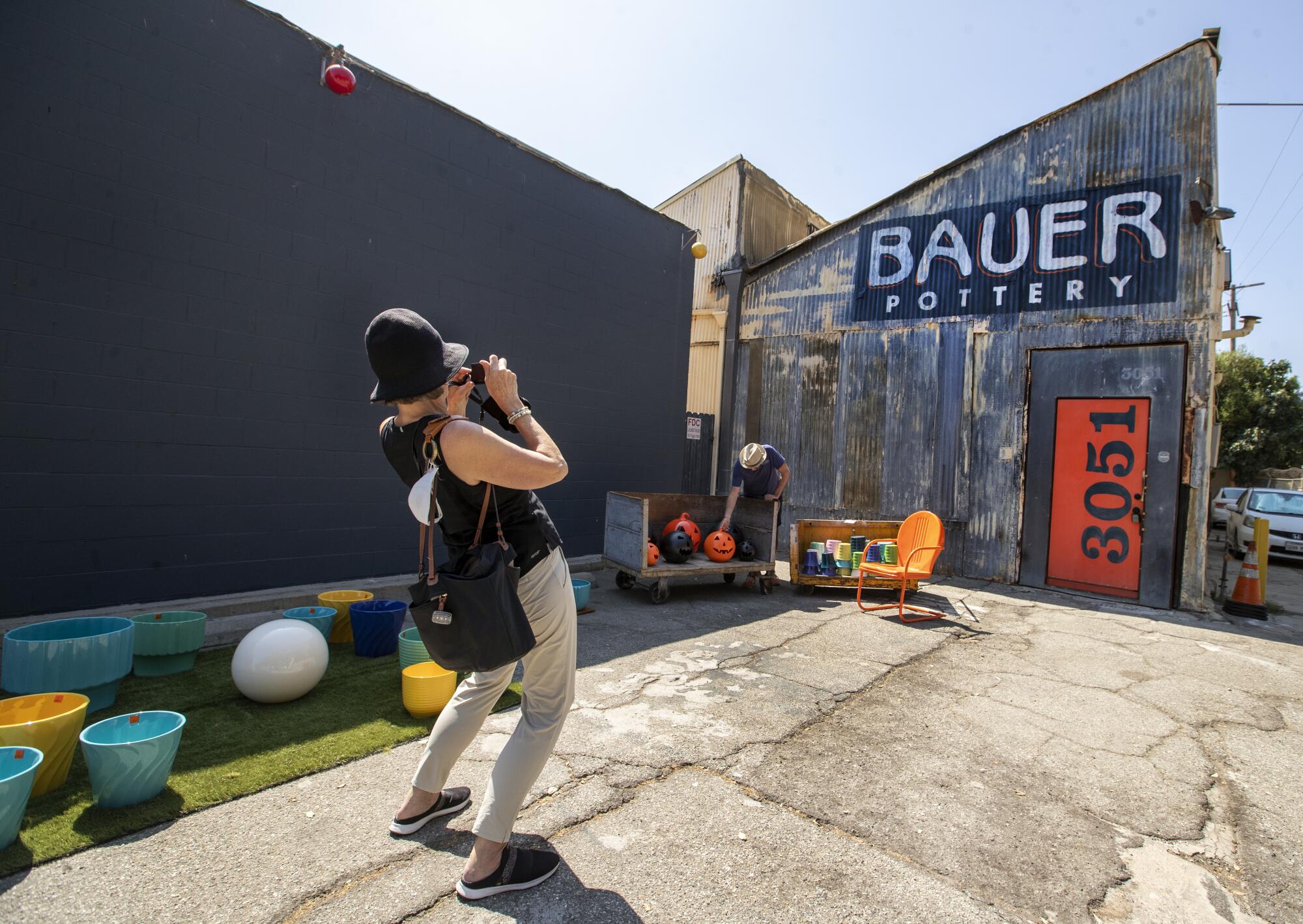
The place has become important to Boniecki, who has hosted weddings and Thanksgiving parties there, and even cared for stray cats that were born on the lot.
But the property was sold this year and the new landlord had other plans for it. In July, Bauer and other tenants received a 60-day notice to vacate.
“I keep on thinking that there may be a reprieve, but that’s not going to happen,” said Boniecki, with tears in his eyes. He’s looking for a new location nearby and has no plans to lay off the showroom’s four employees.
Moira Quirk first saw Bauer at Vroman’s bookstore in Pasadena and began to collect a few pieces after researching the brand online and finding out about its deep Los Angeles history.
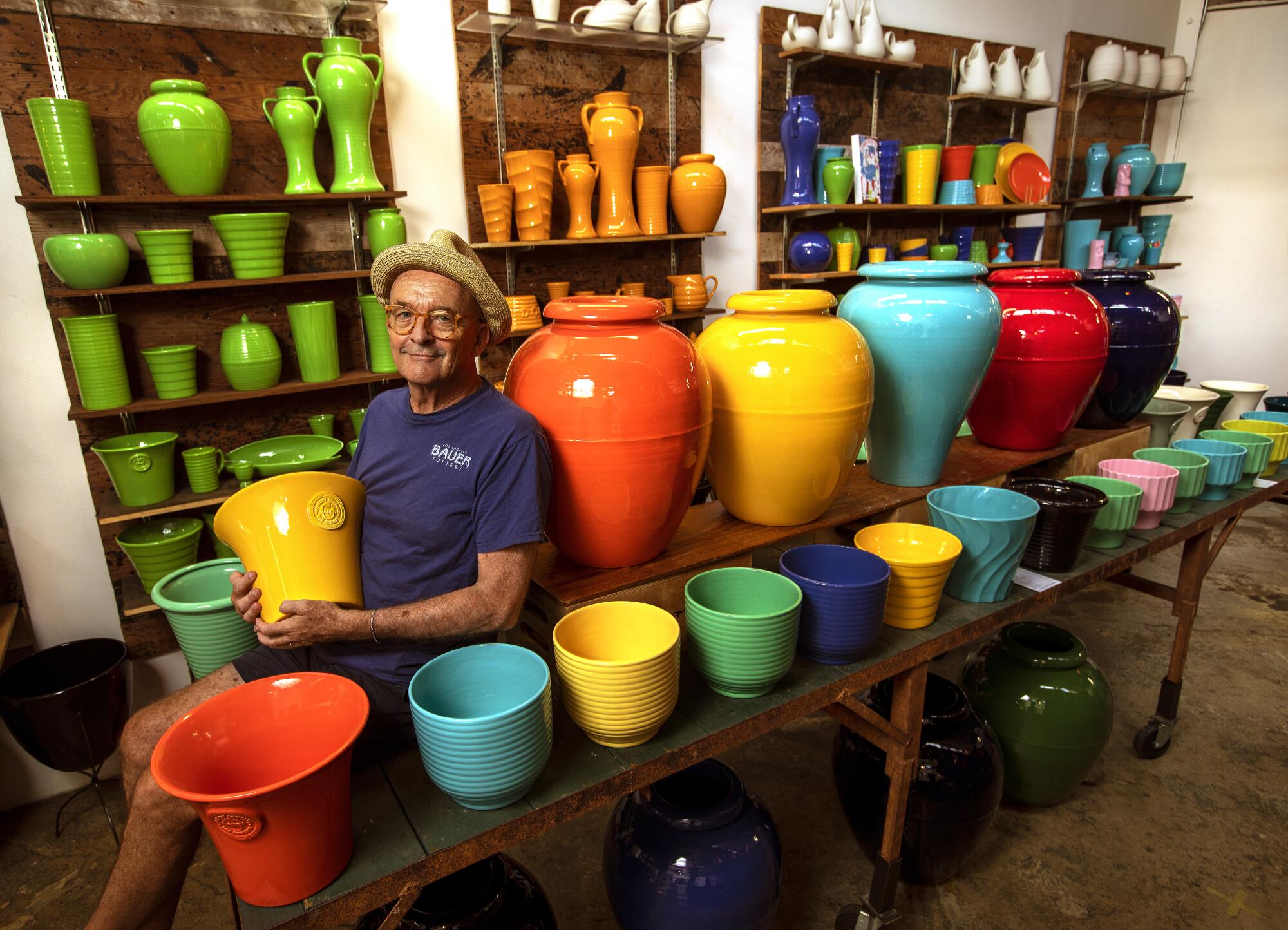
“I just went back to England and [Bauer pottery] was what I took as presents for friends as an L.A. thing,” Quirk said. “It wasn’t a Dodgers T-shirt, it was something for the house.”
“I hope they find another place [where] you can actually look and touch and see the colors in person and have that tactile experience,” she said. “It makes me sad, the idea of being booted out of your home.”
Laura Ghiglieri, 60, has been shopping at Bauer Pottery for nearly four years after purchasing a vintage Bauer pot at an estate sale. When researching the brand, she found Bauer 2000 and said she became enthralled with the cat figurines. She’s especially sad to see this location go as it’s only 20 minutes from her home.
“It’s horrible. I love this location, I love the building,” Ghiglieri said. “I’m hoping they get a new lease someplace else, and I will definitely be there.”
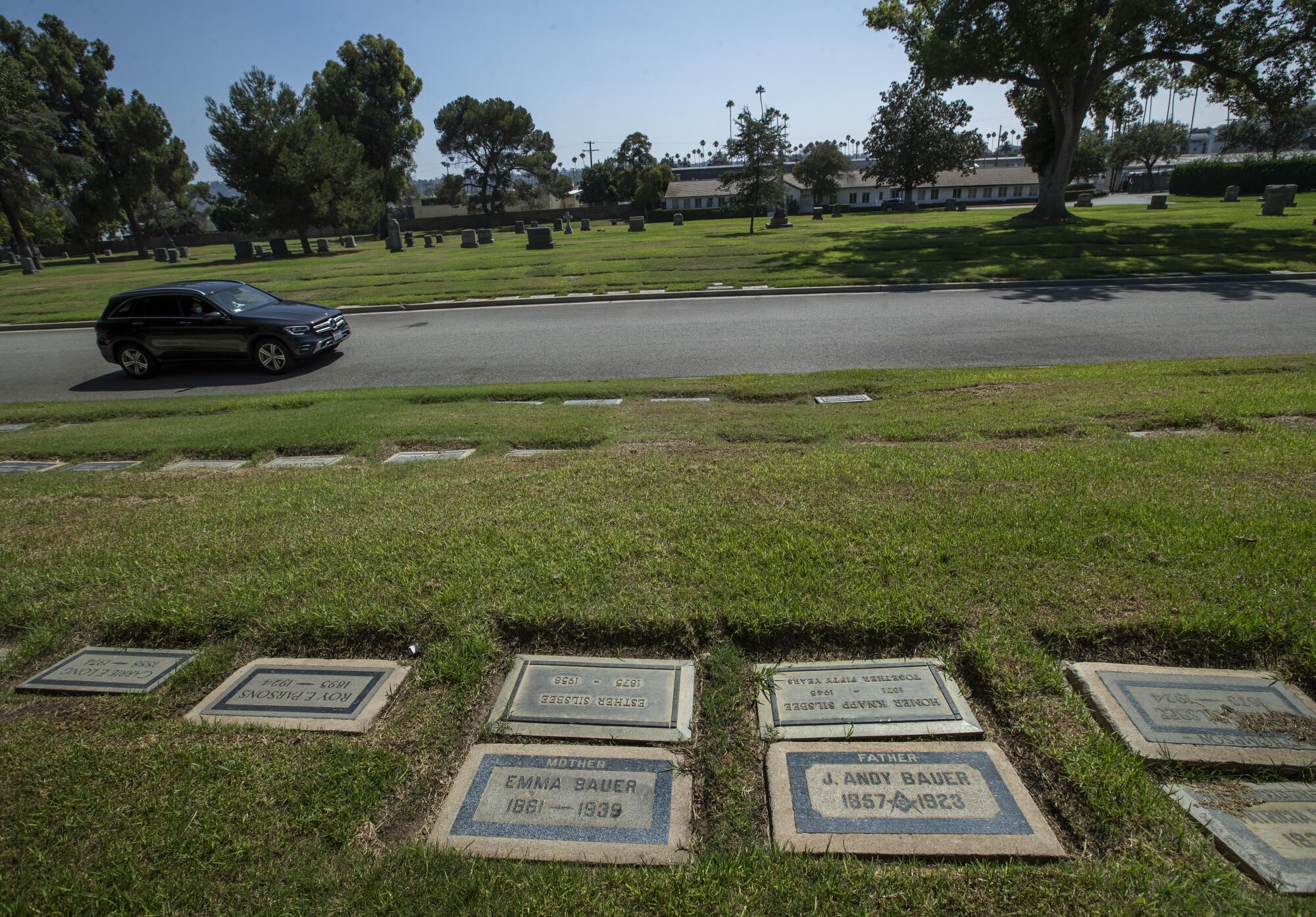
Boniecki likes to tell visitors that the showroom sits just 60 yards from the Bauer family plot at Forest Lawn cemetery in Glendale. The grave of J.A. Bauer, founder of the original pottery company, is visible from an upstairs window. J.A. Bauer died in 1923, and 100 years later the Bauer showroom faces a similar fate.
“He’s probably turning in his grave,” Boniecki joked. “I’ve told this story hundreds of times, and people are surprised, they find it spooky. They find it weird, they find it amazing that there’s this connection.”
Watch L.A. Times Today at 7 p.m. on Spectrum News 1 on Channel 1 or live stream on the Spectrum News App. Palos Verdes Peninsula and Orange County viewers can watch on Cox Systems on channel 99.
More to Read
Inside the business of entertainment
The Wide Shot brings you news, analysis and insights on everything from streaming wars to production — and what it all means for the future.
You may occasionally receive promotional content from the Los Angeles Times.
